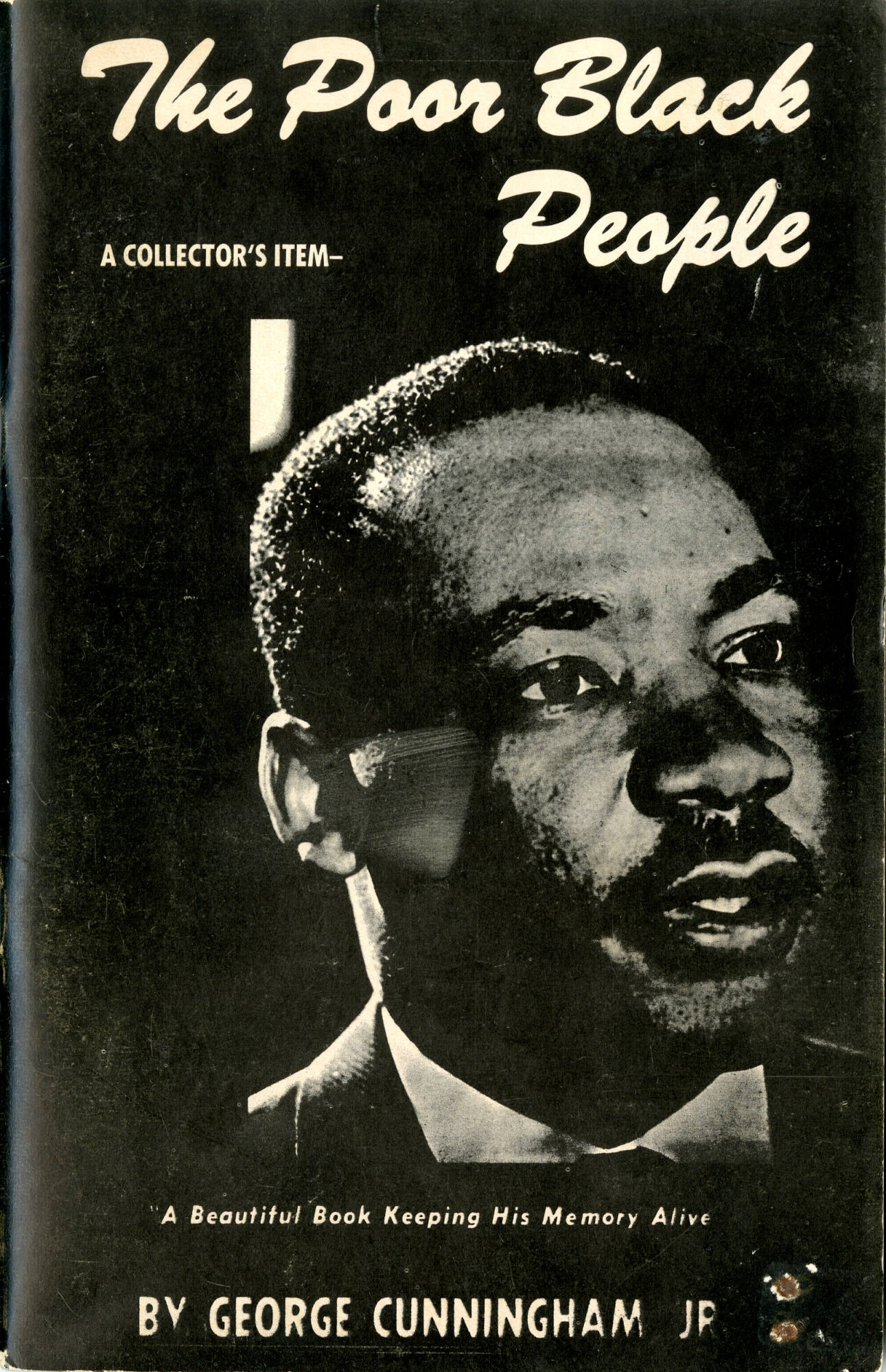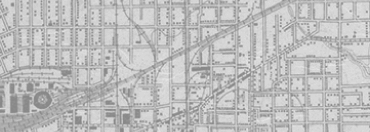


Back
The Poor Black People memorial booklet, 1968
The Poor Black People memorial booklet was published immediately after the assassination of Dr. Martin Luther King Jr. in 1968 and is 58 pages long. This commemorative photo booklet examines violence and poverty in the African American community and issues a call to action for African Americans to join the Poor People's Campaign in memory of Dr. King. Photographs include graphic images of violence against African Americans, extreme poverty, and a series of images depicting the life, death and funeral of Dr. King.
The Poor Black People memorial booklet, 1968
1968
Paper
8 3/8 × 6 7/16 × 3/16 in. (21.3 × 16.4 × 0.5 cm)
The Sixth Floor Museum at Dealey Plaza
2022.019.0001
Based on the text and images in this memorial booklet, it appears to have been written and compiled very quickly between Dr. King's funeral in Atlanta on April 9, 1968, and the official launch of the Poor People's Campaign in mid-May. The author, George Cunningham Jr., was a native of Selma, Alabama. In addition to authoring several books related to the Civil Rights Movement, Cunningham was founder of the non-profit Cunningham School of Typing and Shorthand in Michigan. Cunningham published this booklet via a small press called Sherwood Forest Publishers in Hamtramck, Michigan. Named for the royal forest in Nottinghamshire, England, made famous by the legend of Robin Hood, it was no doubt chosen to reflect the notion of robbing the rich to give to the poor, or standing up for the common man in the face of tyranny. -- Stephen Fagin, Curator

The Poor Black People memorial booklet, 1968
The Poor Black People memorial booklet was published immediately after the assassination of Dr. Martin Luther King Jr. in 1968 and is 58 pages long. This commemorative photo booklet examines violence and poverty in the African American community and issues a call to action for African Americans to join the Poor People's Campaign in memory of Dr. King. Photographs include graphic images of violence against African Americans, extreme poverty, and a series of images depicting the life, death and funeral of Dr. King.
The Poor Black People memorial booklet, 1968
1968
Photographs
Assassination
Civil rights
Collectibles
Memorials
Poor People's Campaign
King, Martin Luther, Jr.
Lorraine Motel
Washington, D.C.
Hamtramck
Paper
8 3/8 × 6 7/16 × 3/16 in. (21.3 × 16.4 × 0.5 cm)
The Sixth Floor Museum at Dealey Plaza
2022.019.0001
Based on the text and images in this memorial booklet, it appears to have been written and compiled very quickly between Dr. King's funeral in Atlanta on April 9, 1968, and the official launch of the Poor People's Campaign in mid-May. The author, George Cunningham Jr., was a native of Selma, Alabama. In addition to authoring several books related to the Civil Rights Movement, Cunningham was founder of the non-profit Cunningham School of Typing and Shorthand in Michigan. Cunningham published this booklet via a small press called Sherwood Forest Publishers in Hamtramck, Michigan. Named for the royal forest in Nottinghamshire, England, made famous by the legend of Robin Hood, it was no doubt chosen to reflect the notion of robbing the rich to give to the poor, or standing up for the common man in the face of tyranny. -- Stephen Fagin, Curator











